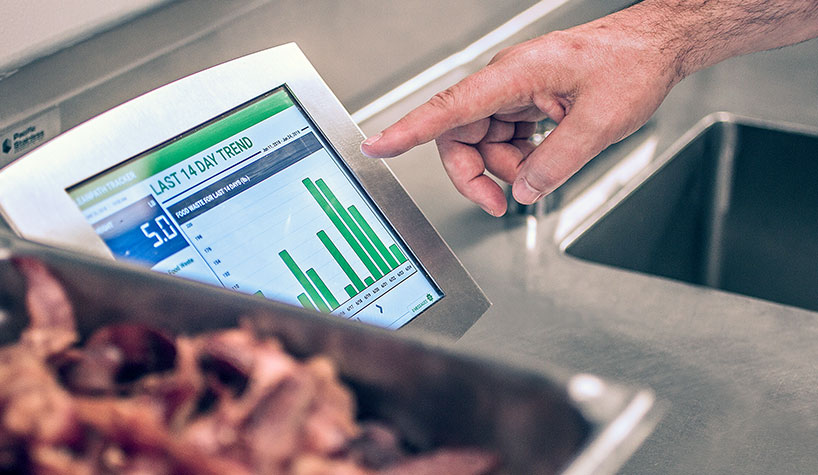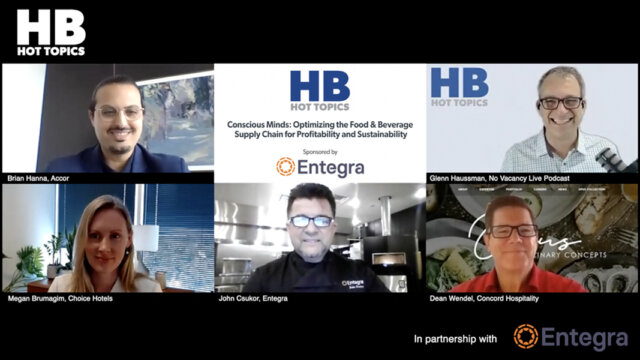PORTLAND, OR—What are the benefits of reducing food waste? The bottom line: Hotels are seeing significant savings, and it’s helping the environment. From engaging staff to rethinking the buffet line, there’s much hoteliers can do to be part of the solution.
“When we launched Leanpath in 2004, food costs were rising, and we wanted to help foodservice and hospitality kitchens become more efficient so they wouldn’t have to raise menu prices. We pretty quickly understood that food waste wasn’t just a financial issue, but also a major environmental concern,” said Andrew Shakman, founder and CEO, Leanpath. “Our goal today is to make food waste prevention and measurement everyday practice in the world’s kitchens. Since 2014 alone, we’ve empowered our clients to prevent more than 40 million pounds of food waste.”
Leanpath’s clients include Marriott and Accor, as well as other major hotel brands.
The Food and Agriculture Organization (FAO) of the United Nations defined food loss and waste as misuse of the labor, water, energy, land and other natural resources that went into producing it. It is estimated that 1.3 billion tonnes of food is lost or wasted—meaning one-third of all food produced for human consumption, according to FAO.
“It makes financial sense; we typically see kitchens wasting between four and 10% of purchased food. It makes sense for the environment, and we’re seeing nearly every major hotel brand integrating food waste prevention goals into their sustainability programs,” said Shakman.
“Finally, we see again and again that kitchen staff are engaged by the mission of food waste prevention. It has become a recruiting and retention tool for our clients,” he said.
Hotels are particularly vulnerable to food waste through overproduction, Shakman explained, especially those with breakfast buffet or banquet service. Leanpath data shows 55% of food waste in hospitality sites comes from overproduction.
“If you’ve got a breakfast buffet, pull back on production as demand wanes,” he said. “Use creative merchandising to keep the buffet looking full, but with less food, so you’ve got less potential waste at the end of service.”
Leanpath’s food waste tracking technology is part of the company’s effort to support hoteliers who wish to take action and transform their operations. When it comes to the tools and support provided, it’s about behavior change. Shakman believes that giving kitchens the tools, data and support to make smart decisions and change the behaviors of staff can lead to less food waste.
“Our food waste prevention platform starts with in-kitchen trackers, where food is quickly weighed and identified. All that data is automatically analyzed showing in detail what is being wasted and why,” he said. “With the support of our customer success team, kitchens develop strategies to target and prevent that waste on average 50% or more.”
At Novotel Brisbane in Australia, Leanpath data revealed that the hotel’s most wasted item was breakfast pastries. Leanpath was able to help the hotel team determine where the waste was occurring and find a solution.
“So instead of doing a bulk bake of croissants first thing in the morning, they did two smaller bakes through service, basing the size of the second on demand. They repurposed other overproduced pastries into bread pudding. That cut their pastry waste,” he said. “The second most wasted item was cold cuts on the buffet because they had to merchandise so much to make the deli board look full. They cut the amount of cold cuts on display and reinvested the savings from pastries to buy smoked salmon to fill out the deli board. The higher-quality offering was a big hit, so there was less waste. All together, they reduced their food waste by 66% in less than a year.”



